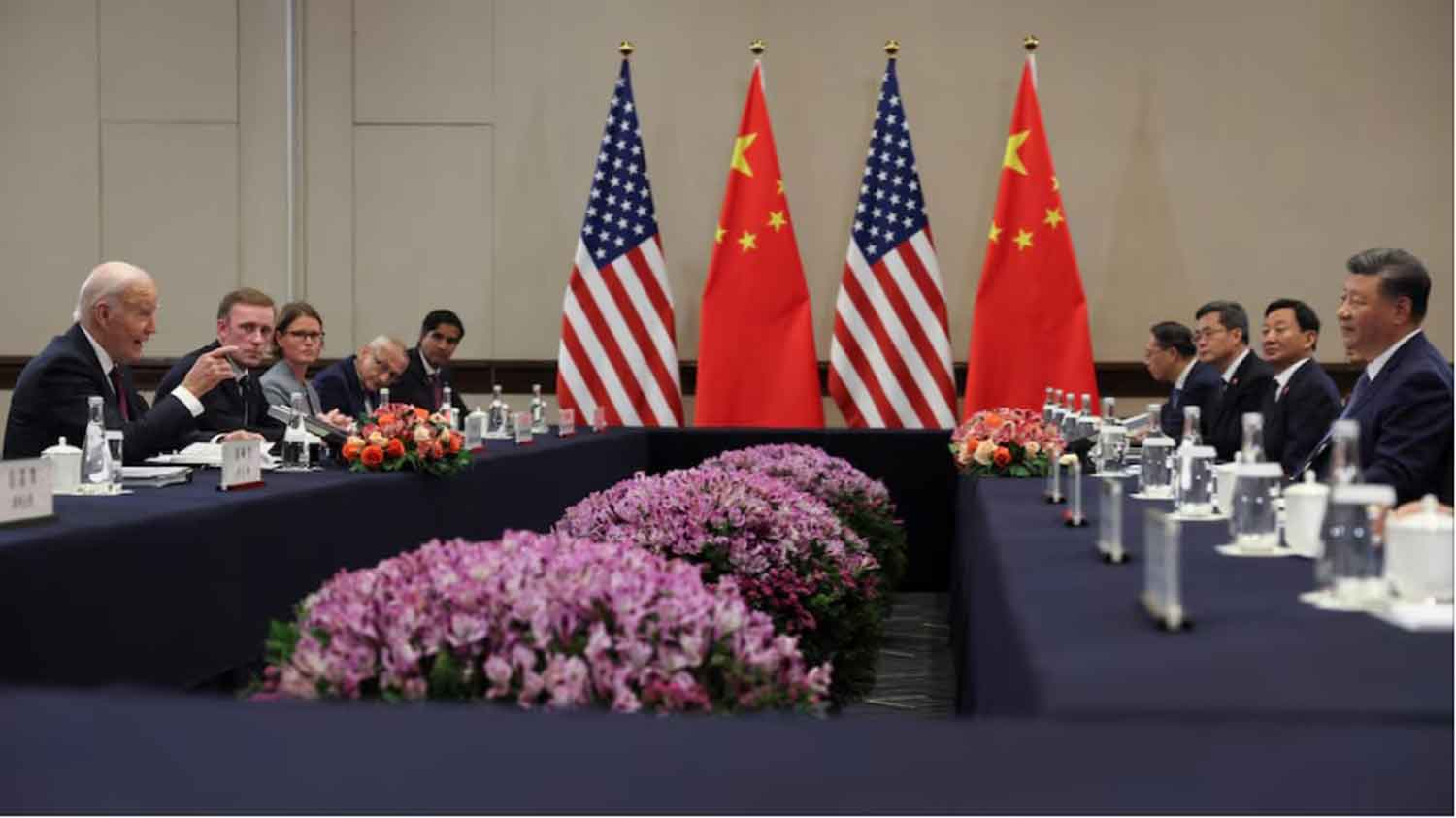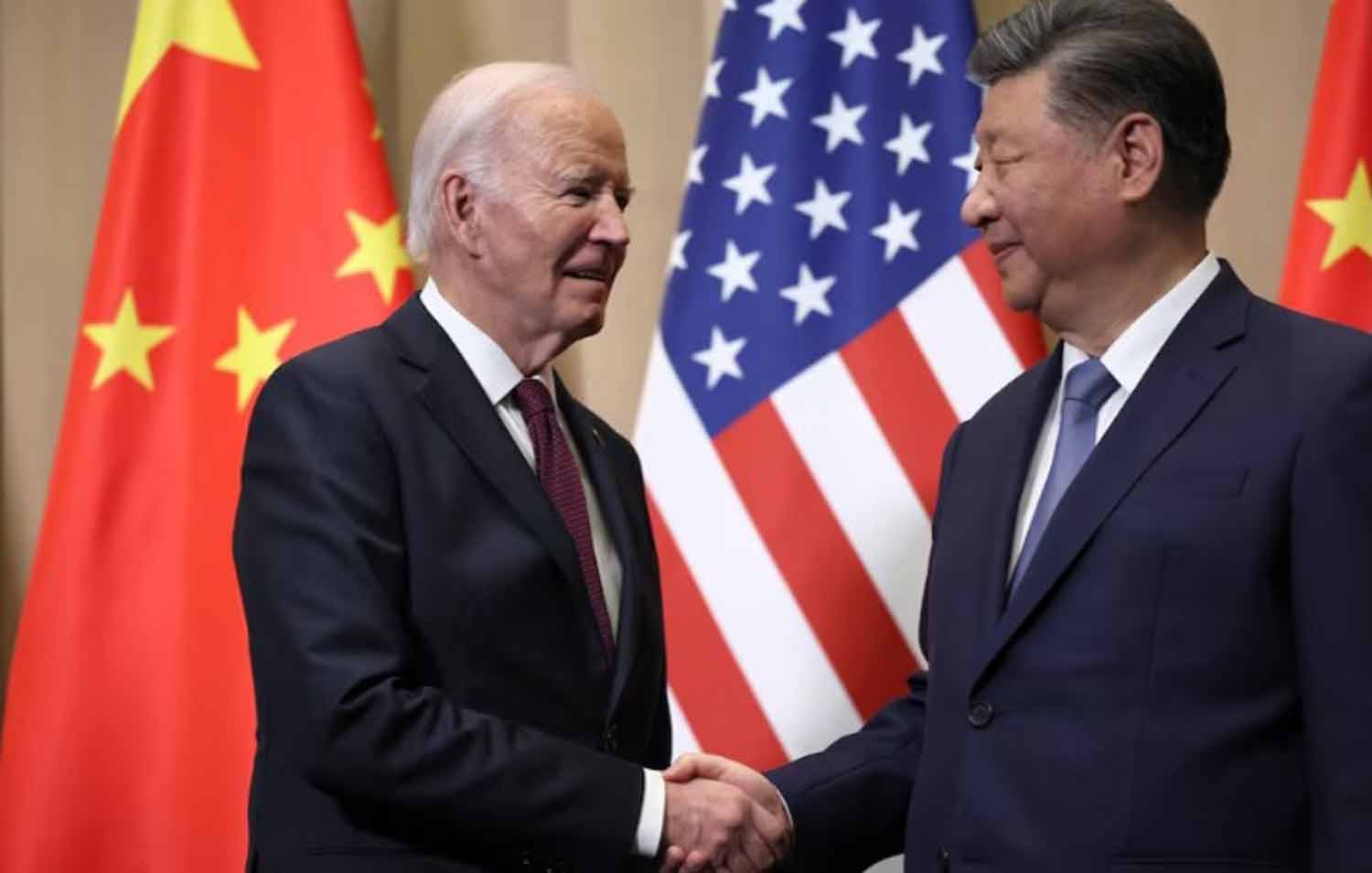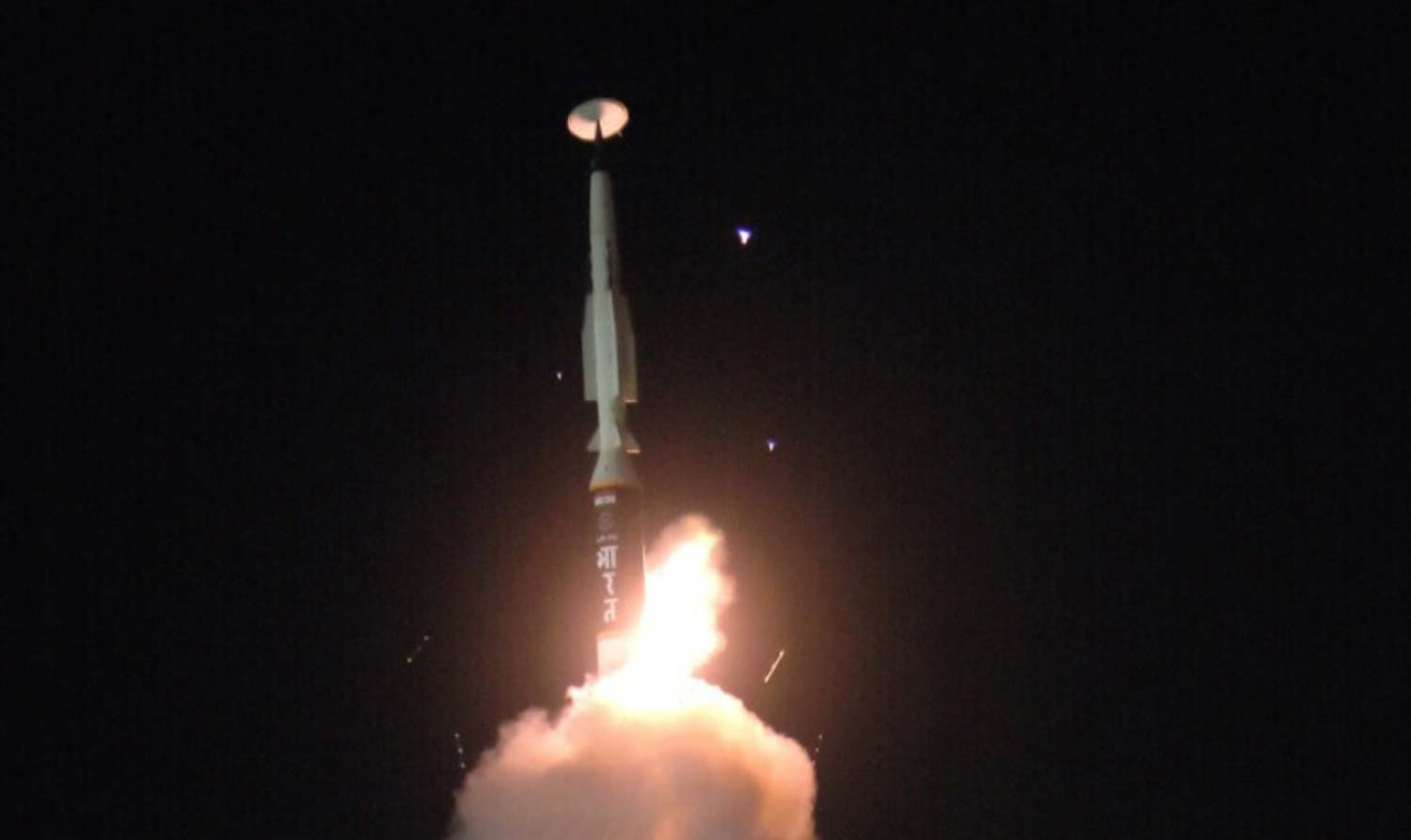Chinese President Xi Jinping expressed his commitment on Saturday to collaborate with the incoming U.S. administration under Donald Trump during his final discussions with outgoing President Joe Biden. The talks addressed various issues, including cybercrime, trade, Taiwan, the South China Sea, and relations with Russia.
Biden and Xi engaged in a two-hour meeting at the hotel where the Chinese leader was staying, coinciding with the Asia-Pacific Economic Cooperation forum in Lima, Peru. This marked their first conversation in seven months.
Xi stated that “China’s goal of a stable, healthy, and sustainable China-U.S. relationship remains unchanged” following Trump’s election, while recognizing the “ups and downs” in bilateral relations. He emphasized China’s readiness to collaborate with the new U.S. administration to enhance communication, broaden cooperation, and address differences.
Biden acknowledged that while the two leaders have not always seen eye to eye, their exchanges have been “frank” and “candid.”
With just two months until Trump assumes the presidency, U.S. officials are increasingly concerned about potential conflicts during the transition period. Biden conveyed to Xi the importance of maintaining direct communication between leaders even after his departure from office, as noted by national security adviser Jake Sullivan.
The president-elect has pledged to implement sweeping 60% tariffs on U.S. imports of Chinese products as part of his “America First” trade strategy, a move that Beijing opposes. Additionally, Trump intends to appoint several hardline figures on China to key positions, including U.S. Senator Marco Rubio as secretary of state and Representative Mike Waltz as national security adviser.
Biden has sought to ease tensions with China, yet there were limited indications of progress on key issues.
However, both Biden and Xi concurred that decisions regarding the use of nuclear weapons should be made by humans rather than artificial intelligence, marking the first known discussion of this topic between the two nations, as stated by the White House.
The leaders also addressed concerns regarding North Korea, a Chinese ally, whose increasing collaboration with Russia and troop deployments in support of Moscow’s conflict in Ukraine have raised alarms in Washington, Beijing, and European capitals.
“President Biden emphasized that the People’s Republic of China’s publicly articulated stance on the Ukraine war advocates for no escalation or expansion of the conflict, and the deployment of DPRK troops contradicts that position,” Sullivan remarked.
“He further noted that the PRC possesses both influence and capability, and should leverage these to help avert further escalation or the introduction of additional DPRK forces into the conflict.”
KEY ISSUES
Among the significant topics discussed during the meeting were a recent cyberattack linked to China that targeted the communications of U.S. government officials and presidential campaign staff, increased pressure from Beijing on Taiwan, and developments in the South China Sea, as well as China’s support for Russia. Biden also brought up the cases of Americans he believes are unjustly detained in China.
Regarding Taiwan, the leaders reportedly had a tense exchange. Biden urged an end to Beijing’s “destabilizing” military actions surrounding the island, according to the White House.
In response, Xi asserted that the “Taiwan independence” activities of Taiwanese President Lai Ching-te were at odds with peace and stability in the region, as conveyed by the Chinese foreign ministry. Lai is expected to make a stop in Hawaii and possibly Guam during a sensitive visit that is likely to provoke Beijing in the upcoming weeks, as reported by Reuters.
Taiwan’s foreign ministry expressed gratitude to President Biden for his remarks, asserting that China is the primary instigator of tensions.
In a statement, it emphasized that “China’s ongoing military provocations surrounding Taiwan pose the most significant threat to regional peace and stability, as well as a considerable risk to global economic prosperity.”
Former Economy Minister Lin Hsin-i met with Biden at the summit on Friday, extending an invitation for him to visit Taiwan soon.
China considers Taiwan, which operates as a democratic entity, to be part of its territory. The United States remains Taiwan’s key international supporter and arms supplier, despite the absence of formal diplomatic ties. Taiwan firmly rejects China’s claims of sovereignty.
Simultaneously, China’s economy is facing challenges due to Biden’s trade policies, which include plans to limit U.S. investments in Chinese sectors such as artificial intelligence, quantum computing, and semiconductors, along with export restrictions on advanced computer chips. Biden has characterized these measures as essential for U.S. national security and stated that they do not hinder the majority of trade.
During their meeting, Xi claimed that there was no evidence to support allegations of Chinese involvement in cyberattacks, as reported by Chinese state media. He also advised Biden that the U.S. should refrain from engaging in disputes concerning the Spratly Islands, a contested area between China and the U.S.-aligned Philippines.
Beijing has dismissed a 2016 ruling from the Permanent Court of Arbitration in The Hague, which determined that its extensive maritime claims in the South China Sea lack legal foundation, a case initiated by Manila.
Xi conveyed to Biden through an interpreter, “When our two nations regard each other as partners and friends, seek common ground while setting aside differences, and assist one another in achieving success, our relationship can advance significantly. However, if we view each other as rivals or adversaries, engage in harmful competition, and aim to undermine one another, we risk destabilizing our relationship or even reversing our progress.”
The two leaders also took a moment to candidly reflect on the straightforward nature of their longstanding relationship, according to Sullivan, the U.S. national security adviser.
Shen Dingli, an international relations expert based in Shanghai, noted that China aims to reduce tensions during this transitional phase. “China certainly does not wish for its relations with the United States to be destabilized before Trump officially assumes office,” Shen remarked.
Leaders from the Pacific Rim convened at the APEC summit to evaluate the potential effects of Trump’s reinstatement on January 20. The South American summit highlights the challenges facing U.S. influence in its own region, where China is actively engaging in diplomatic outreach.
Xi, who arrived in Lima on Thursday, is set to embark on a week-long diplomatic initiative in Latin America, which includes a revised free-trade agreement with Peru, the inauguration of the significant Chancay deep-water port, and a state visit to Brazil’s capital next week. Additionally, China has announced its intention to host the APEC summit in 2026.
China is pursuing Latin America’s metal ores, soybeans, and other resources, but U.S. officials express concerns that China may also be seeking new military and intelligence facilities near the U.S. Chinese state-affiliated media have dismissed these allegations as unfounded.
Discover more from Defence Talks | Defense News Hub, Military Updates, Security Insights
Subscribe to get the latest posts sent to your email.





